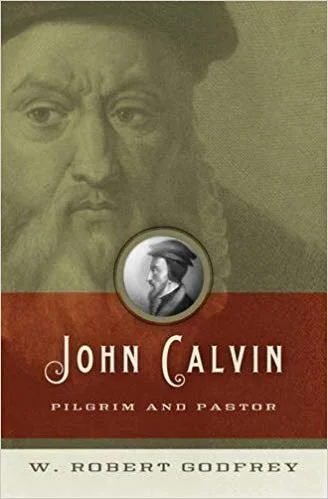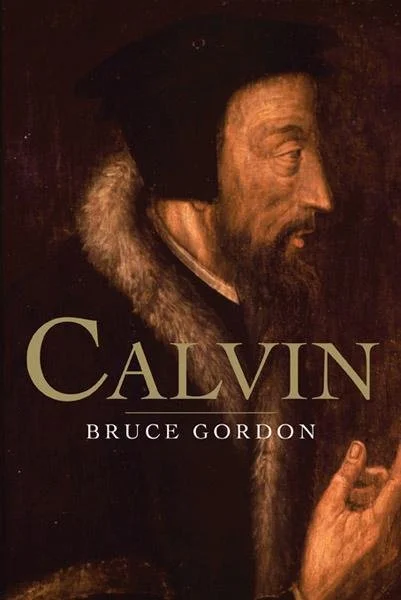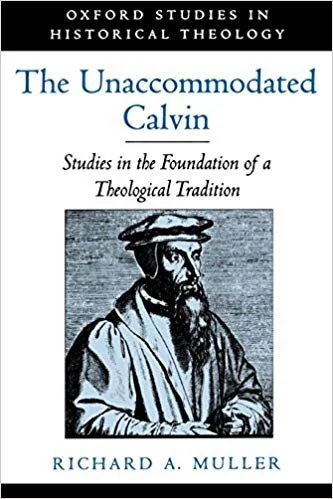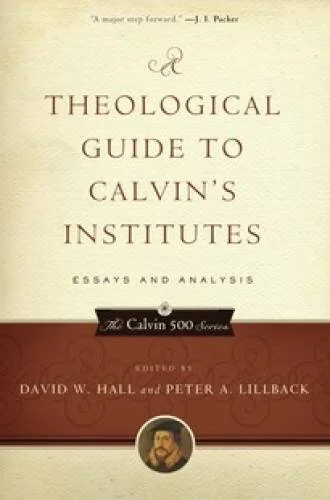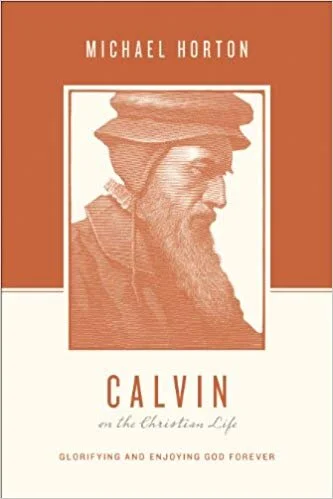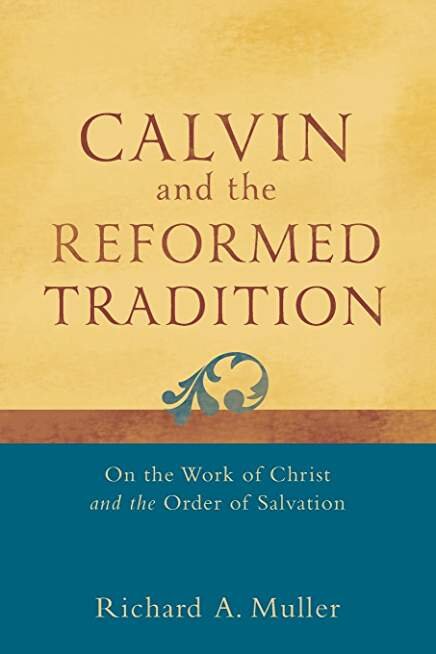St. Nicolaus Church in Strasbourg Where Calvin was the pastor of the French-speaking congregation
Calvin’s pulpit in St. Peter’s in Geneva
What Should I Read to Learn More About John Calvin?
Perhaps no one in the history of the Christian church gets as much bad press (dare I say "fake news") as does John Calvin.
Many people take Will Durant's ill-founded assessment as fact (that Calvin was cold, cruel, heartless, and directly responsible for the death of arch-heretic Michael Servetus). There are far too many anti-Calvinist preachers, who, having never read a word from any of Calvin's works, and who know nothing about him, pronounce their heated anathemas and scorn upon him. These anathemas are all many evangelicals know about the Genevan Reformer.
There are also those with principled disagreements regarding various aspects of Calvin's ministry and theology (such as our Lutheran friends), who do get things wrong which they ought not.
Robert Godfrey's biography of Calvin is the one book you should read about Calvin. Dr. Godfrey places Calvin in that context with which Calvin himself would identify--a scholar working in pastoral ministry. This is a readable, interesting, and important book. Godfrey introduces us to John Calvin the pastor, whose life was devoted to preaching the gospel and caring for Christ's flock--not the usual, but the proper assessment. Calvin: Pilgrim and Pastor
Many consider it the best biography of Calvin. You can find it here: Bruce Gordon, Calvin
This book may be hard to find at a reasonable price (there are plenty of used copies floating around). I think this is still the best single volume introduction to Calvin's life and theology. It is very well-written, and covers the basic biographical details, as well as many of Calvin's doctrinal formulations. Calvin -- Wendel
Richard Muller is the most authoritative Calvin scholar around. It has been my privilege to have studied under him. Muller absolutely destroys the arguments of those (many of whom should know better) who attempt to drive a wedge between Calvin (the biblical theologian) and the later Calvinists (of federal theology as found in the Reformed scholastics, and in the Westminster Standards). Muller can be tough going, but he is always worth the effort. This one not for the faint of heart, nor is it inexpensive. The Unaccommodated Calvin
This is a series of essays from contemporary Reformed luminaries about various aspects of Calvin's thought as set out in his Institutes. Some essays are better than others, but I'll take the fifth if you ask me more. Well worth reading nonetheless (but only after you've read the Institutes). Guide to Calvin's Institutes
This book is a real gem. Michael does a great job of setting out Calvin's suprisingly warm piety, which grows out of Calvin's understanding of our union with Christ. Michael draws extensively from Calvin's Commentary on the Psalms. One cannot read this without finding one's own heart softened, and in turn motivated to greater levels of devotion to Christ and to the piety which results. Calvin on the Christian Life
If you are interested in questions surrounding the ordo salutis (order of salvation), and its development in Calvin and the subsequent Reformed tradition, then prepare for the feast which awaits you. This is Muller at his best. Muller--Calvin and the Reformed Tradition
Tadataka Maruyama’s 2022 volume Calvin’s Ecclesiology: A Study in the History of Doctrine (Eerdmans, 2020) is an outstanding book and highly recommended for anyone interested in Calvin’s view of the church and his early development as a leader in the Reformed churches.
Maruyama covers Calvin’s rise as a self-trained theologian who followed Farel into Evangelical biblicism (Maruyama’s term for those who followed Luther), and away from Erasmus (the Reform-humanist camp). Many insights here, and a thorough mastery of the primary sources, many of which are still not translated into English.
Calvin’s time with Farel and Bucer had a profound influence upon him, although Calvin moved beyond insights initially gleaned from them to what is now a distinctly Reformed ecclesiology (in contrast to Romanism). This, the author contends, eventually led to a final phase of development in Calvin’s ecclesiology, what Maruyama identifies as a broader Reformation ecclesiology once Reformed Protestantism spreads beyond Geneva and the initial small circle of Reformed churches in France and Switzerland.
Maruyama’s volume bears the imprimatur of Richard Muller, no small feat. Much here I didn’t know, it is well written and sourced, and highly recommended. Dr. Harrison Perkins reviews it in detail here: Harrison Perkins on Calvin’s Ecclesiology


